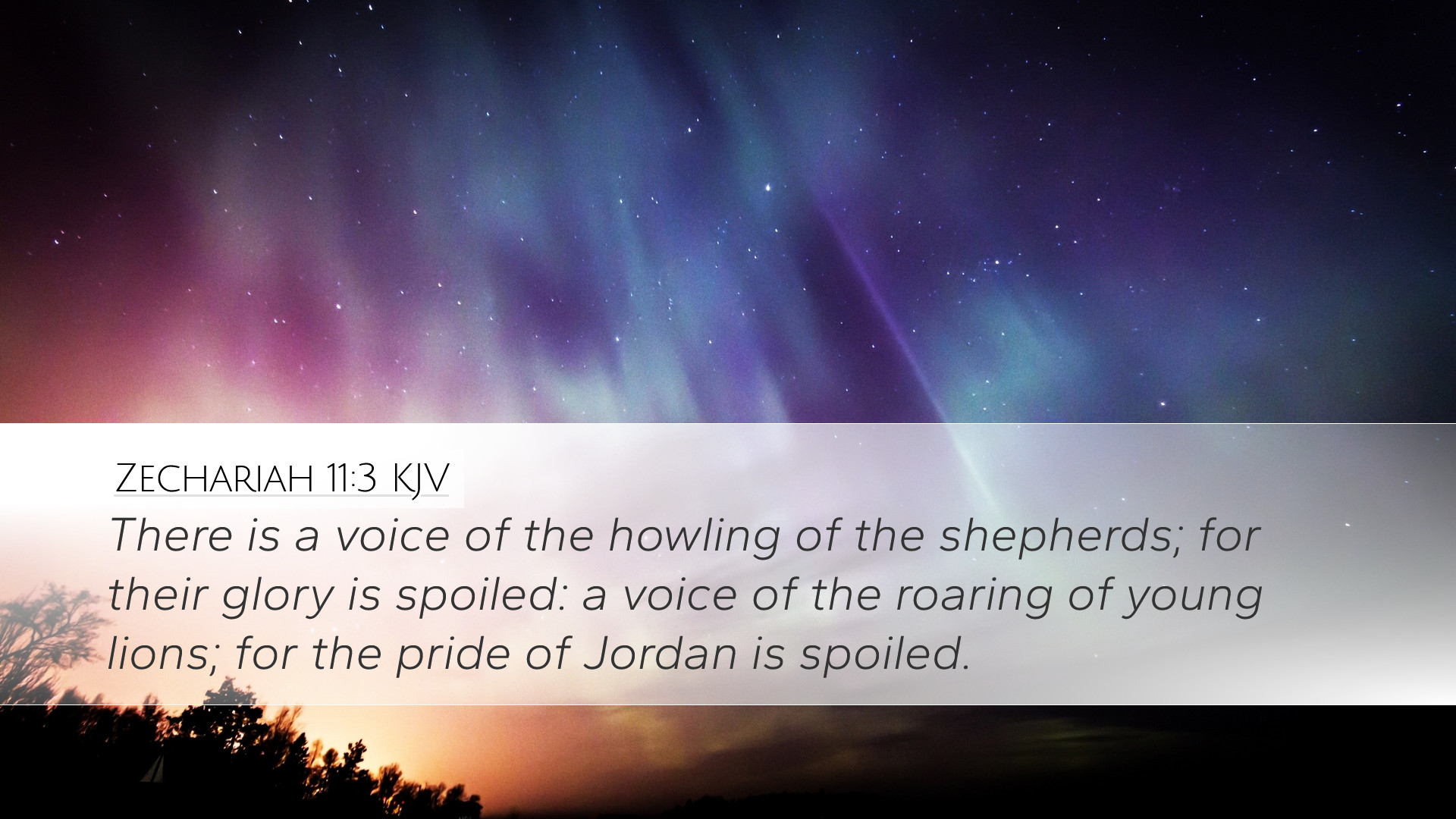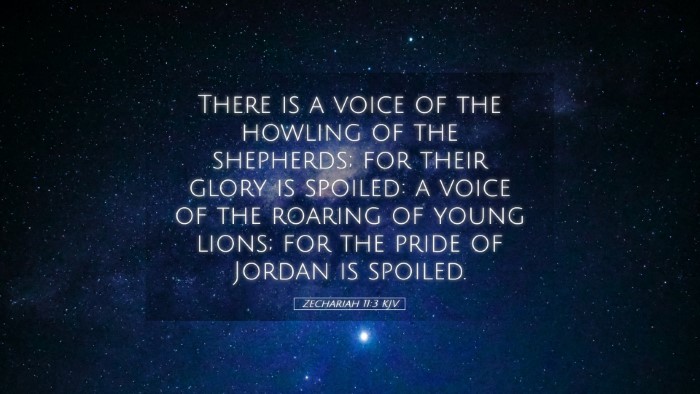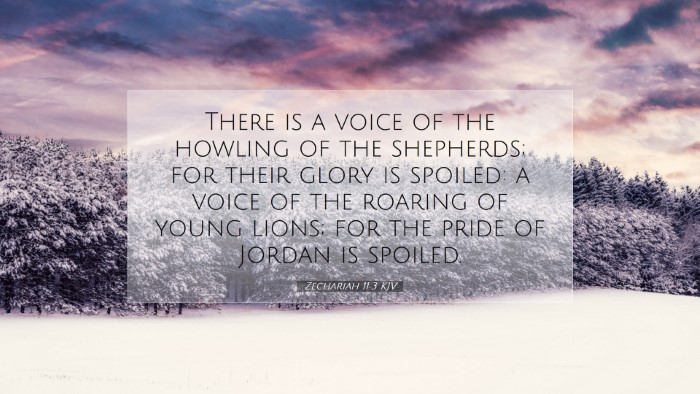Old Testament
Genesis Exodus Leviticus Numbers Deuteronomy Joshua Judges Ruth 1 Samuel 2 Samuel 1 Kings 2 Kings 1 Chronicles 2 Chronicles Ezra Nehemiah Esther Job Psalms Proverbs Ecclesiastes Song of Solomon Isaiah Jeremiah Lamentations Ezekiel Daniel Hosea Joel Amos Obadiah Jonah Micah Nahum Habakkuk Zephaniah Haggai Zechariah MalachiZechariah 11:3
Zechariah 11:3 KJV
There is a voice of the howling of the shepherds; for their glory is spoiled: a voice of the roaring of young lions; for the pride of Jordan is spoiled.
Zechariah 11:3 Bible Commentary
Commentary on Zechariah 11:3
Zechariah 11:3 states:
"There is a voice of the howling of the shepherds; for their glory is spoiled: a voice of the roaring of young lions; for the pride of Jordan is spoiled."
Introduction
This verse stands at the intersection of prophecy and lament, portraying the devastating consequences of the failure of leadership in Israel. Through the prophet Zechariah, God delivers a poignant message to His people, signaling the judgment that comes against unfaithful shepherds and the impending destruction of their glory.
Contextual Background
Zechariah prophesied during a tumultuous period in Israel's history, when the people were returning from Babylonian exile. The text reflects both their spiritual struggles and the consequences of their disobedience. This contextual understanding is crucial for realizing the depth of sorrow and warning encapsulated in this verse.
Analysis of Key Components
Shepherds and Their Spoilage
According to Matthew Henry, the "shepherds" refer to the leaders and rulers of Israel, tasked with guiding the people. Their failure to fulfill this duty leads to lamentation and chaos among the people. The imagery of the "howling" emphasizes the deep sorrow that accompanies their loss.
Henry further notes that the "glory" of the shepherds—that is, their esteemed position among the people—is brought low. This juxtaposition between the shepherds’ former glory and their current state serves as a stark reminder of the consequences of forsaking their divine mandate.
The Voice of Young Lions
The young lions’ roar can be interpreted as a symbol of strength and power. Albert Barnes asserts that these lions represent the peoples and nations that would rise against Israel as a judgment from God. Their “pride” signifies both their majesty and their current downfall—a reflection of the devastating effects of divine judgment on those who stray from God’s ways.
Symbolism of the Jordan
In the context of this verse, "Jordan" serves as the geographical and spiritual symbol of Israel's identity. Adam Clarke emphasizes that the spoil of the Jordan represents the loss of God’s blessing and protection, which were once abundant in the land. With the devastation depicted, the Jordan becomes a reminder of what has been lost due to disobedience and wickedness.
Theological Implications
This verse invites deep reflection on several theological themes:
- Leadership and Responsibility: The text underscores the weighty responsibility that leaders bear before God. Their failures impact not only themselves but also the entire community they shepherd.
- Judgment and Mercy: The roar of the lions signifies God’s judgment, but it is also a call to repentance. This duality enriches our understanding of God's character—one that righteously judges yet yearns for restoration.
- The Nature of True Glory: True glory cannot be measured by worldly standards. The spoil of the shepherds illustrates that divine favor is contingent upon faithfulness and obedience, rather than position or power.
Reflection for Pastoral Application
For pastors and church leaders, Zechariah 11:3 serves as a sober reminder of the impermanence of authority devoid of accountability to God. The following insights can be applied:
- Pastoral leadership must be rooted in humility and the pursuit of God’s will, rather than self-interest.
- Church leaders are called to be diligent in maintaining the spiritual health of their congregation, recognizing the weight that their actions bear on the community.
- The voice of God still calls for accountability and repentance among His leaders today, urging them to seek His guidance sincerely.
Concluding Thoughts
In conclusion, Zechariah 11:3 paints a vivid picture of loss intertwined with the hope of future restoration. The imagery of howling shepherds and roaring lions serves as a prophetic warning to leaders and churches alike: without faithful leadership guided by God, both glory and strength will be tragically forfeited.
This passage distills essential lessons about leadership, divine judgment, and the profound need for repentance and restoration—a timeless message for believers across generations.


